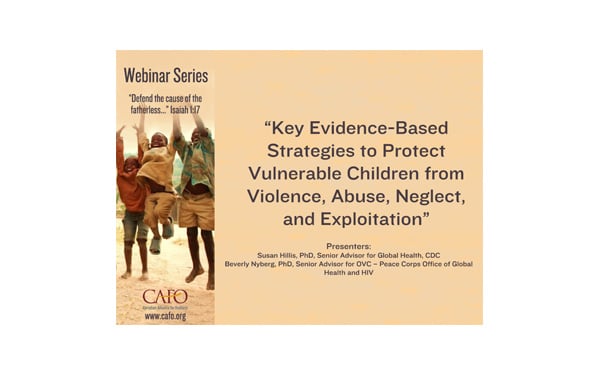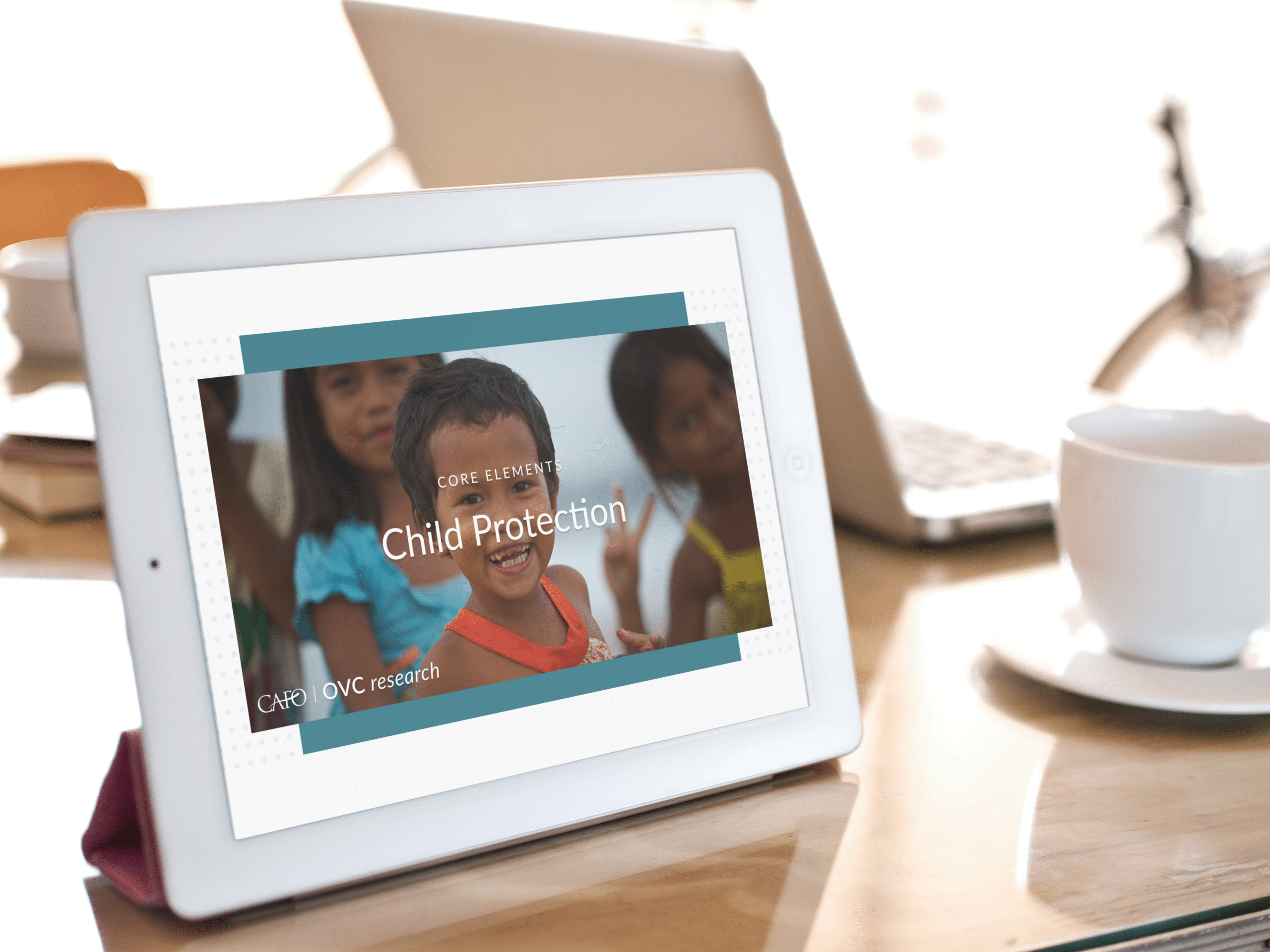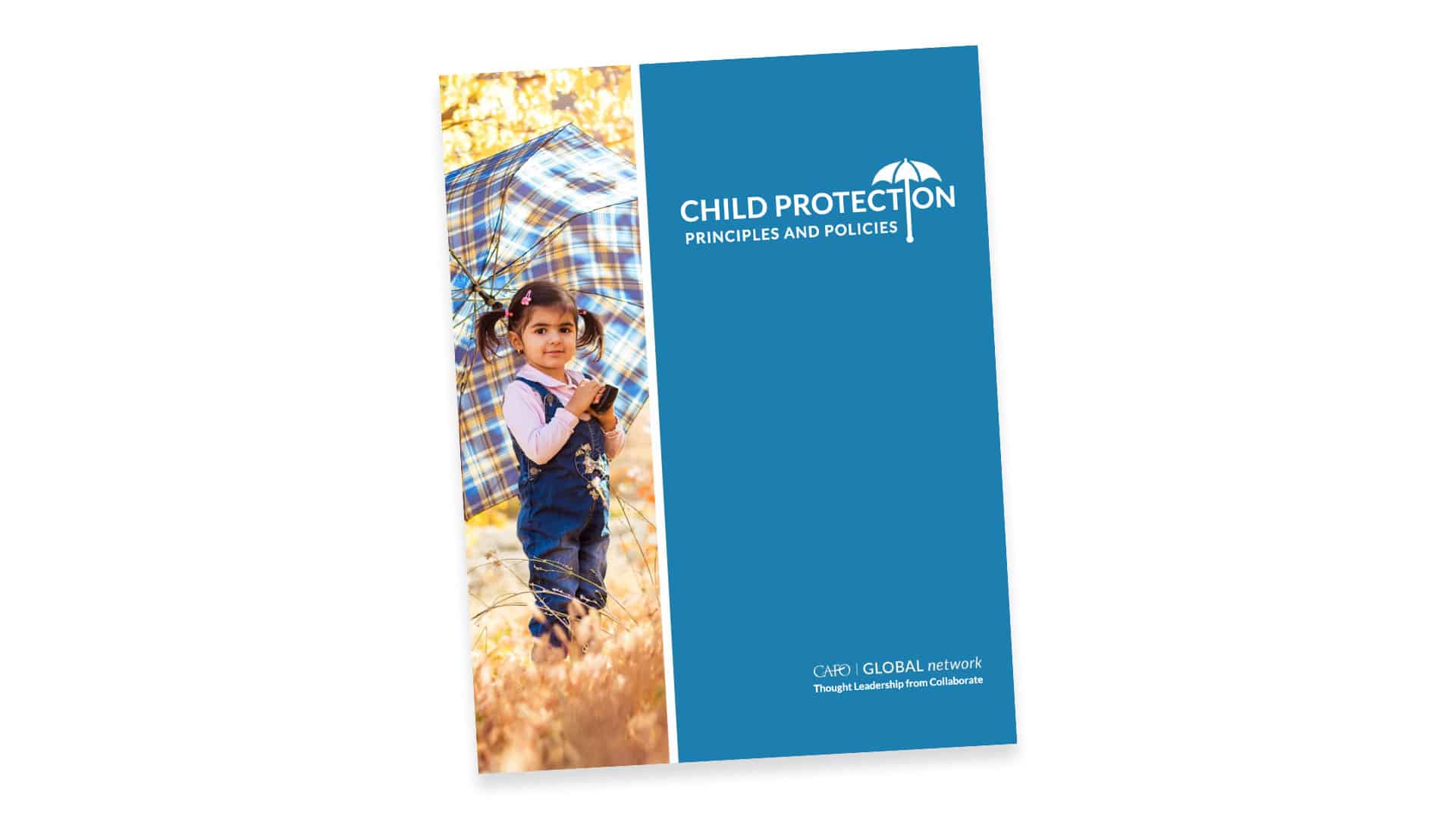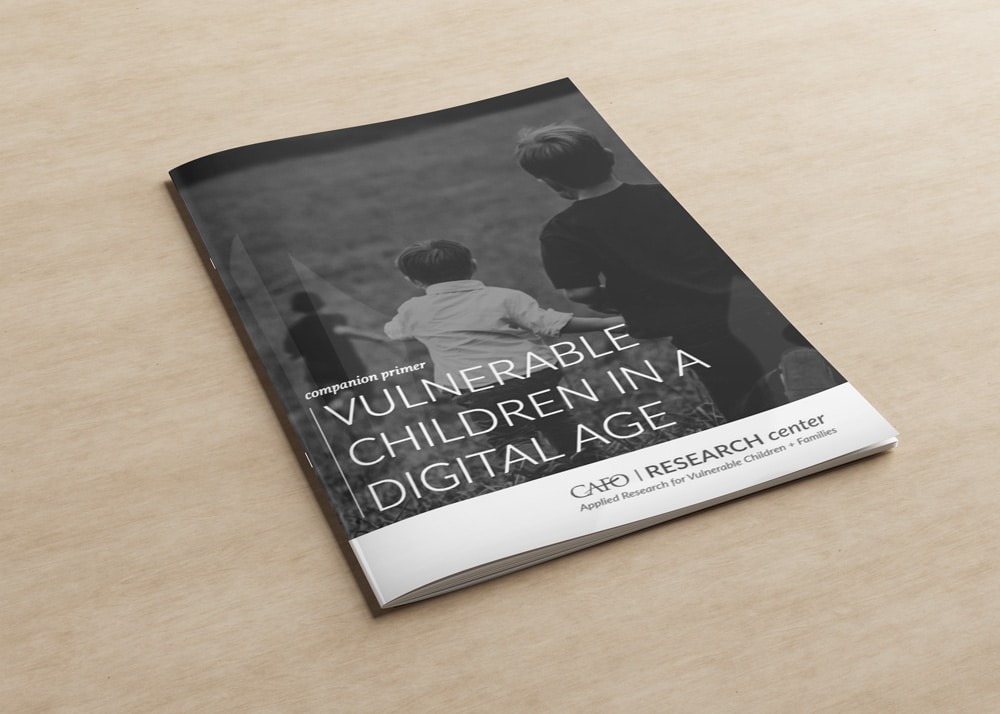Key Evidence-Based Strategies to Protect Vulnerable Children from Violence, Abuse, Neglect and Exploitation
The first protection we owe to children is to guard them from violence. The U.S. Center for Disease Control (CDC) has identified a combination of actions essential to this protection of the young. The CDC had developed these actions into a package of complementary interventions, known as THRIVES, to guide countries as they choose a combination of strategies that together have the greatest potential for impact.
This CAFO webinar is your chance to learn more about THRIVES and the specific strategies it promotes. It will be presented by the individual who led development of THRIVES for the CDC, Dr. Susan Hillis and Dr. Beverly Nyberg, from Peace Corps’ Office of Global Health and HIV as well as a Co-Chair of PEPFAR’s technical working group for orphans and vulnerable children programs.
THRIVES strategies cross health, social services, education, finance, and justice sectors. They include: Training in parenting; Household economic strengthening; Reduced violence through protective policies; Improved services; Values and norms that protect children; Education and life skills; and Surveillance and evaluation. Each of the THRIVES strategy areas is underpinned by promising evidence of success in high income countries, with growing evidence that these strategies work in lower income countries also. PEPFAR, UNICEF, USAID, and the WHO recognize many of the THRIVES strategies as critical components in combatting violence against children.
Presented by: Susan Hillis, PhD, Senior Advisor for Global Health, CDC and Beverly Nyberg, PhD, Senior Advisor for OVC – Peace Corps Office of Global Health and HIV




